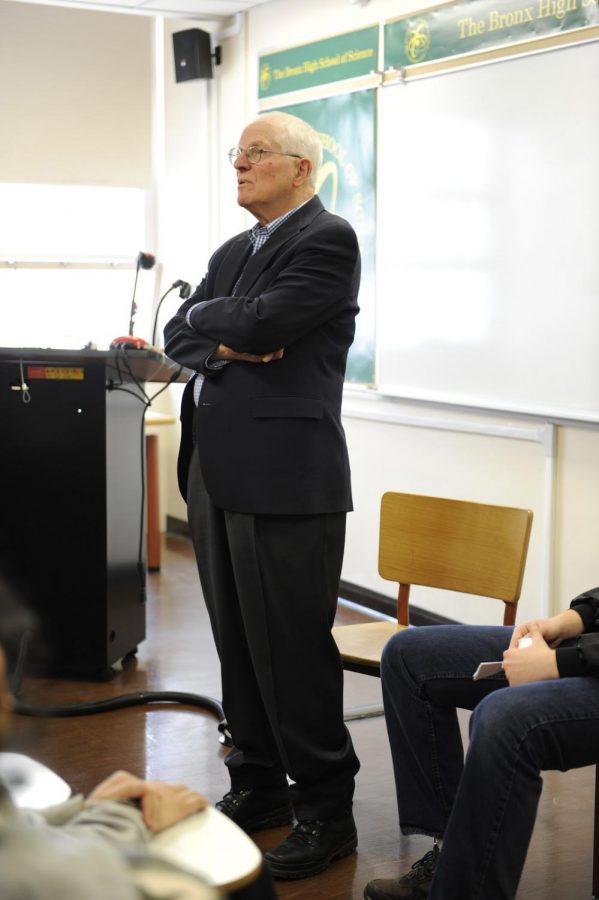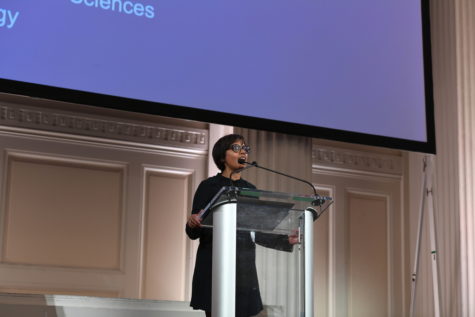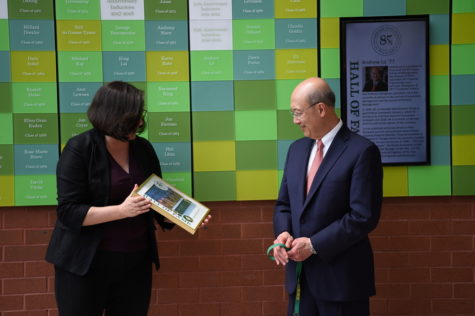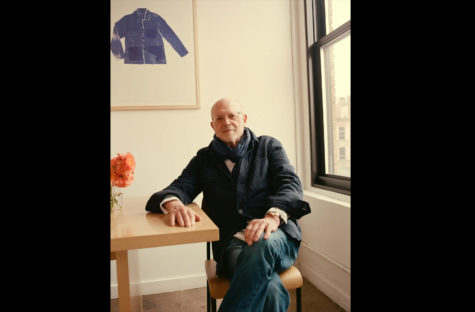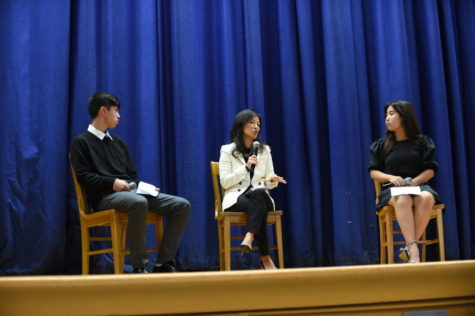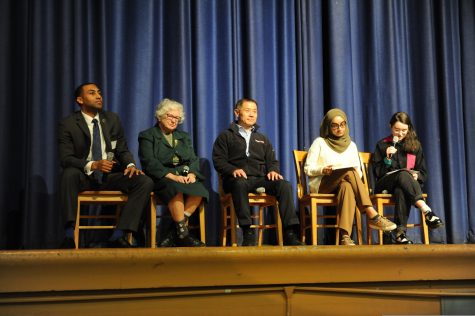William Taubman ’55
A Different Side of History
Taubman stands to talk to a group of students.
“Be prepared to stumble,” said Pulitzer Prize-winning Bronx Science alumnus William Taubman on what he would tell himself in high school.
“I came to Bronx Science in 1955, partly because in the morning I was supposed to audition for the High School of Music & Art [now LaGuardia High School]. I was sick to my stomach, probably from nerves.” This image of a shaken, nervous high schooler is far removed from the man Taubman is today; Taubman has a very worldly, grounded presence, with a deep wisdom to his cadence that is fitting of someone who has won awards for his writing.
Prior to his rise as a renowned biographer and political science professor, Taubman was deeply engaged in the culture of Bronx Science. He performed in multiple plays and became “a bigshot politician” as Vice President of the SO. Taubman went on to attend Harvard University, where he got his B.A in history in 1962 and Columbia University, where he got his M.A. in 1965 and Ph.D. in 1969.
“You have to tell a story out of the facts, and I don’t mean fiction. You have to tell a story.”
In his own words, Taubman was “never a science star.” He pursued a history major and specialized in learning about Russia during the Cold War. Taubman eventually won the Pulitzer Prize for his biography of Nikita Khrushchev, which took him fifteen years to write. The piece was significant in its incredibly detailed portrait of a Soviet leader in a time when there was a huge geopolitical divide between the two powers. Currently, he is a retired political science professor at Amherst University and has recently finished writing a second book, this one focused on Mikhail Gorbachev.
But why the Cold War? Why Russia? Taubman himself never thought he would be the person to write a biography of Nikita Khrushchev, let alone win a Pulitzer for it. According to Taubman, back in his days at Bronx Science, he frequently read the news and, later in life, was drawn to the mystery of the Soviet Union. He wanted to know how it got to where it was, and how the vision that Karl Marx had ended with the autocratic state of the U.S.S.R. His interest led him to write, Khrushchev: The Man and His Era. “And then I won a Pulitzer,” Taubman said.
Taubman has an incredibly vivid way of analyzing history. “Any history is an art, not a science,” he stated on his writing. “You have to tell a story out of the facts, and I don’t mean fiction. You have to tell a story.” It wasn’t just Taubman’s ability to tell a story of those facts, but his unique approach to the way that he wanted to write that that won him his Pulitzer. In a school renowned for its science and research, Taubman was a man with a different direction and a drive to follow it, despite the roadblocks. He was able to make the most of the world around him and the times he lived in, and from that, he created a renowned legacy of historical reporting for one of the most intricate and complex times in human history.
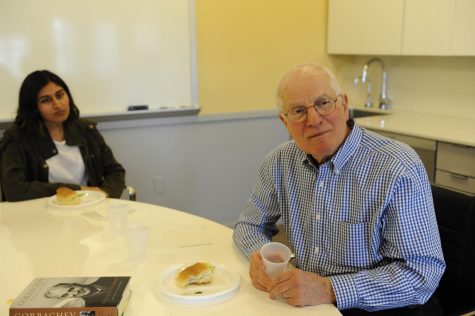
Taubman with his latest book, a biography of Gorbachev.
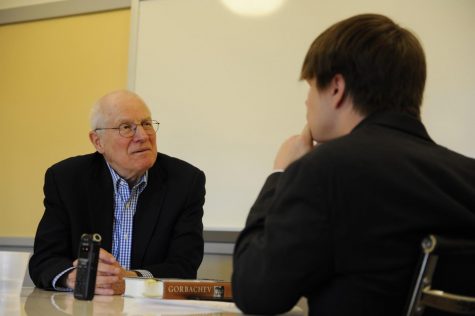
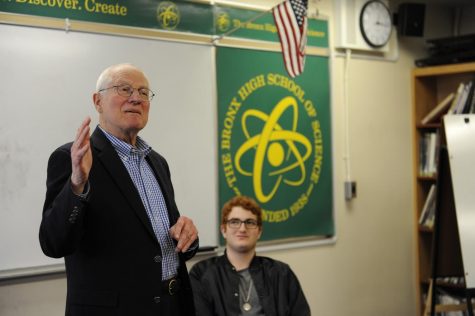
Taubman gives his closing remarks to a group of students in the library.
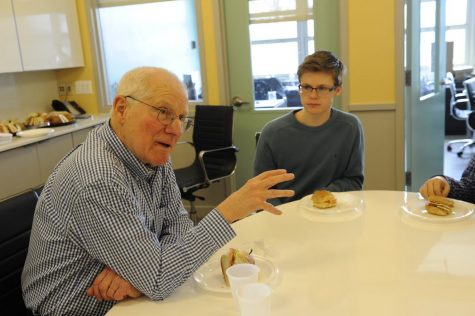
Taubman addresses a smaller group of selected students.
George Crooks is an Editor-in-Chief for ‘The Science Survey’ and is the founder and co-host of ‘The Science Survey Podcast.’ He believes that good,...
Johan Wichterle is a Chief Photographer and Photography Editor for ‘The Science Survey’ and ‘The Observatory.’ Throughout his life, Johan...

